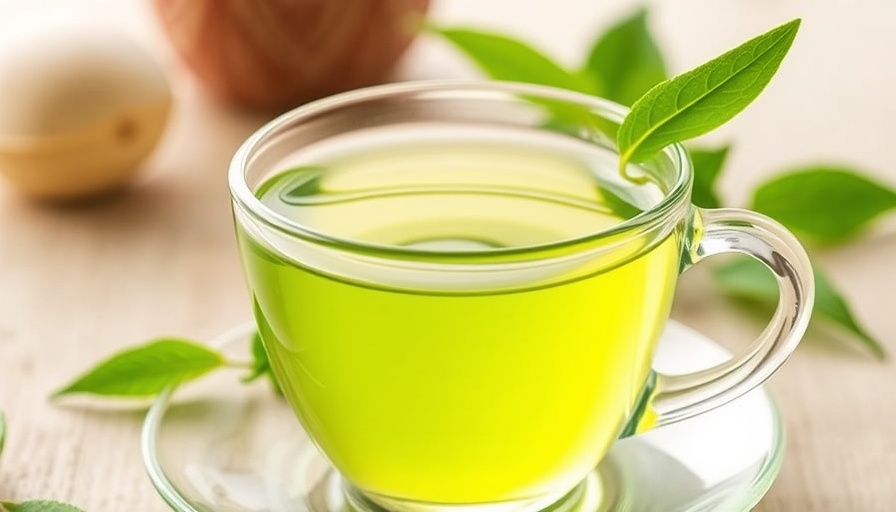
Unpacking the Myth of Green Tea and Fat Loss
When it comes to the endless pursuit of weight loss, many have turned to green tea, hoping it acts as a magical elixir that burns fat. However, the science reveals a more nuanced story. Bethan Crouse, a performance nutritionist at Loughborough University, explains that while caffeine, found in green tea, can indeed boost fat oxidation, the effect is minimal at best and shouldn't be relied upon as a primary fat-burning strategy.
The Reality of Fat Oxidation
Understanding fat oxidation is crucial. It involves breaking down body fat into fatty acids to fuel our bodies, a process that happens most efficiently during exercise. During low to moderate intensity workouts, fat becomes the primary energy source. However, as Crouse aptly states, "There’s not necessarily a food that burns fat." For food to elicit this effect, it would require replicating the physical effects of exercise, which is unrealistic.
Why Green Tea?
So, why has green tea become synonymous with fat loss? The answer lies in its caffeine content. High doses of caffeine can stimulate the production of adrenaline and noradrenaline, hormones that help mobilize stored energy. This hormonal response could slightly elevate fat oxidation rates. Still, Crouse cautions that this occurs in very small amounts and should never replace a well-rounded fitness regime or sound nutrition strategy.
Caloric Balance: The Bottom Line
Ultimately, the key to fat loss lies in maintaining a caloric deficit—consuming fewer calories than our bodies expend. You can oxidize fats during exercise, but if you’re consuming more calories than you burn, weight loss simply won’t occur. Crouse advises those interested in changing their body composition to focus more on regular physical activity and making mindful changes to their dietary habits.
Rethinking ‘Superfoods’
It’s easy to get swept away by the hype surrounding superfoods and fat-burning supplements. However, skepticism is key. Many bold claims are often misleading. Rather than searching for a magic food, integrating exercise and gradually decreasing caloric intake can yield much more sustainable and healthier results.
Practical Insights for Healthy Weight Management
To manage weight effectively and healthily, consider the following tips:
- **Regular Exercise:** Aim for a mix of cardiovascular and strength-training activities to optimize fat burning and build muscle.
- **Mindful Eating:** Focus on whole, nutrient-dense foods, and pay attention to portion sizes to maintain a caloric deficit.
- **Stay Hydrated:** Sometimes our bodies confuse thirst with hunger. Increased hydration can help manage appetite.
- **Educate Yourself:** Understanding nutritional science empowers you to make informed decisions rather than falling for gimmicks.
Community Resources for Health and Wellness
If you're based in San Antonio, leveraging local health and wellness centers can significantly impact your journey. Many organizations offer classes, community events, and access to experts who can guide you on this path toward optimal health.
In conclusion, while green tea can be a great addition to your diet due to its antioxidant properties, it should not be viewed as a magic bullet for fat loss. Instead, approach your health and fitness journey with comprehensive strategies that include exercise and balanced nutrition. Let's take charge of our health together and embrace a lifestyle that nurtures both body and mind!
 Add Element
Add Element  Add Row
Add Row 



Write A Comment